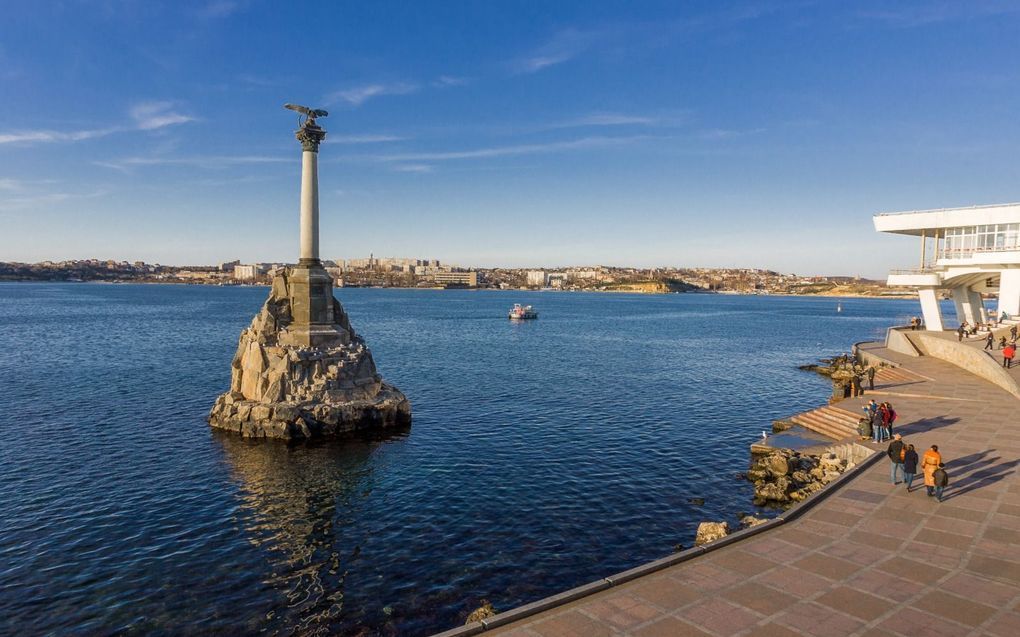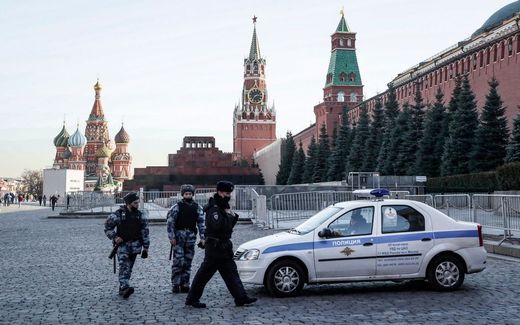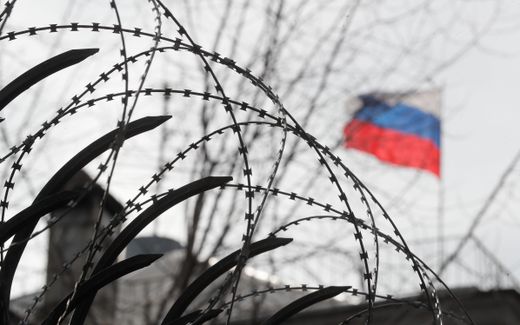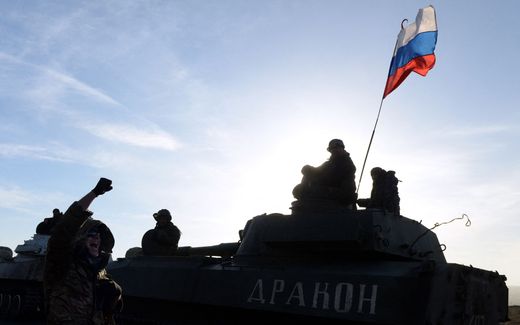Russian pastor: ‘Military operation has revived the Church’
02-07-2022
Eastern Europe
William Immink, CNE.news

Crimea. Photo Wikimedia
Eastern Europe
The conflict in Ukraine saw millions leave the country. Hundreds of thousands fled the hostilities crowding towards the Russian borders. Pastor Alexander Volkov found himself in Crimea at the border as a volunteer, giving the Ukrainians tea, coffee and a meal of buckwheat.
Tanned slightly brown by the southern Crimean sun, Aleksander Volkov (42) returned from his week-long stay on the Russian peninsula last week. As pastor of the evangelical church 'Chapel on Golgotha' in Izhevsk, he went to Crimea for the first time a year ago to set up a new daughter church there.
Of course, when he moved south in 2021 with the support of his church members in Izhevsk, he did not foresee that the conflict in the Donbass would spiral out of control. Suddenly, at the beginning of this year, Pastor Volkov was no longer on a peninsula serving as a holiday resort for all of Russia, but among the refugees from southern Ukraine.
“I saw the distressing need, I saw the pain, the sadness. Yes, death in the eyes of those who have lost their loved ones. Mourning”, says Pastor Volkov. Yet Volkov also sees the other side. That God is doing something to the Church through this military operation. He is reviving it. God makes all things work together for good.
Politics

"As long as it's not about politics," Volkov begins. Why? “Because I think the Church should stay out of politics. In the Holy Scriptures we see that the Church has always been outside the political system. The first church was mainly concerned with preaching the gospel and it did not matter to whom.”
"Moreover, it is not my calling to judge who is right and who is not in this military operation," Volkov said. “I am called to preach the gospel and make disciples.”
That was also the purpose why Volkov first went to Crimea a year ago: “For years we prayed with our church members to set up a church in Crimea. We ended up going there in 2021. Not to help refugees, but to open a new church.
Need
How Volkov eventually ended up as a volunteer at the border with Ukraine is simple: “I heard from acquainted believers in Crimea that there were possibilities to help the affected regions. Believers began to drive there. They saw the dire need and the 'humanitarian collapse' that was taking place.”
For three months, the Ukrainian population lived virtually without food, Volkov explains: “The banking system was blocked by Ukraine, so people could no longer use their debit cards, shops closed and there was no more cash in circulation. People in villages could still survive with the canned products in their cellars, but in cities and larger villages it was much more problematic.”
“We started raising money as a church. We used that money to buy groceries and make food packages. We took them to the border town, Armyansk. Only Ukrainians were allowed to cross the border, so we asked them to bring food parcels to the cities.”
Christians
According to Volkov, a large part of the volunteers are Christian. How come? “Well, God has used this situation to activate the Church. For a long time, the church was just a kind of carnal Christianity. This situation of conflict has changed that for many people.”
“First of all, the Church began to pray. Previously, maybe two or three people would come to prayer meetings. Now a hundred. People understand the need and that they can do so little physically. All they can do is pray and fast, seek His countenance and guidance.”
“Secondly, the Church was also activated in generosity: People saw the need and started donating money. Church members now donate money they may need for humanitarian aid. Or they buy diapers, buckwheat or sugar themselves.”
“I have not seen so many people who were willing to help in a long time. People give themselves completely. People just got into their cars on a mission. Perhaps not a mission to preach the gospel in the first place, but a charity that can open doors for personal witnesses of Christ.”
Black and dirty
Another part of the work that the hundreds of volunteers, including Volkov, were able to do, was welcoming the refugees who crossed the border into Crimea: “They are people who no longer have a roof over their heads. They've lost everything. They are dirty, all black, because they have lived in bomb shelters for months. They are immensely grateful for a cup of tea or coffee and – sorry for the details – but for women, simply sanitary towels.”
The group of volunteers, “from unregistered Baptists to ultra-charismatic movements,” helped Ukrainians exchange money, take on logistics problems, bring them to the train station, find and contact relatives in Russia itself, and so on: “People often have no money. If they have a debit card, it won't work on Russian territory because of the sanctions”.
It is striking that none of the Ukrainian refugees had negative feelings towards the Russians: “Not a single person. I mostly heard stories that beg to differ. From Mariupol and Berdyansk, for example. They tell just the opposite, but that's politics,” says Volkov with a smile.
“No, people are happy and grateful. How wonderful it is that the first people they meet in Russia are Christians.”
Salt
Volkov's work is typical of the Russian Protestants. Instead of activism against the government, against the military hostilities, people are joining forces to do something: "We don't want to get involved in the conflict, because in the end we can't know what is really going on in the conflict."
Pastor Volkov: „I saw the distressing need, I saw the pain, the sorrow. Yes, death in the eyes of those who have lost their loved ones. Mourning. And I know that as a Christian I may bring the light there and the salt to the earth. For the gospel changes human hearts.”
Related Articles





